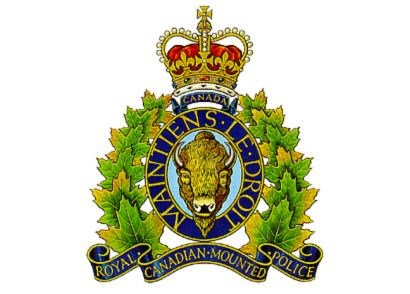The title of worst RCMP detachment in the North belongs to Terrace, according to a just released report by the B.C. Civil Liberties Association (BCCLA).
"If there was one place we were really concerned about that would be it," said BCCLA executive director David Eby. "There were so many complaints [against the RCMP] we had to add an extra day to hear them all."
Eby was commenting on this week's BCCLA report on the RCMP in northern and rural British Columbia, entitled Small Town Justice: A report on the RCMP in northern and rural British Columbia.
In it, the BCCLA lists results of comments the organization collected from average residents in 14 northern B.C. towns between Aug. 9 and 23.
Prince George was highlighted in four of the 104-page document. It reported on incidents such as the tasering death of Clayton Alvin Willey, which resulted in no charge of misconduct, allegations that 10 officers were involved in sexually assaulting a girl, which ended inconclusively since the investigation passed its limitation period, and a judge's ruling that an RCMP supervisor and officer destroyed video behind allegations of excessive use of force with a taser, which resulted in no disciplinary action.
There were also positive comments about the local force, including accolades for the community policing program, the overall strong reputation of members, positive police presence at local drop-in centres where members help homeless people with services, good work in schools around youths and drugs, alcohol and violence, and an RCMP initiated program around mental health training for non-profit organization staff.
Prince George RCMP said they won't comment at this time.
Insp. Tim Shields of the RCMP's "E" Division said "it is disappointing that the BCCLA did not solicit comments from mayor, councillors, community leaders and Aboriginal leaders, and that the RCMP was specifically asked not to take part in the process."
Shields went on to say feedback to the RCMP is generally positive and supportive of the local detachment.
In responding to the situation in Terrace specifically, Shields said, "We know the majority of people in Terrace appreciate that the community has been returned to the community."
Shields blamed the bad reputation on "chronic offenders [who] do not welcome police enforcement initiatives."
The impetus behind the report was not due to any particular incident or in-custody death at the hands of the police, said Eby.
The report was, in fact, done because the province and the national police force are in the midst of putting together a 20-year commitment to provide police services for the province.
"We wanted the province and the RCMP to know what the public was thinking about the service they were receiving, so they could adjust their negotiations appropriately," said Eby.
Eby said he doesn't see the BCCLA's effort as derogatory or detrimental to the RCMP.
He sees the report as an opportunity for the RCMP to see itself reflected by the communities it serves.
"As a matter of fact, we encouraged positive responses from the participants."
To that end, Eby said people in virtually every community people had good things to say about the RCMP.
People generally like beat policing.
"They like when police officers are out of their cars. They like and appreciate the interaction they have with the [force]," said Eby.
People's perception of the RCMP was generally favourable when the police were involved in community activities and when they were able to form relationships with individual officers.
On the negative side of the equation, people in every community were concerned about what they perceived as a lack of accountability.
When problem officers were identified, people saw little in the way of discipline or change of duties and in many cases the community felt repeat offenders went unpunished.
Eby freely admits the BCCLA report is skewed by its nature.
"We went to places where we knew there were concerns with policing and we solicited people with those concerns. But what the RCMP should take note of, is those people, with an admitted axe to grind, still had positive things to say about the RCMP and even when they had problems, they were still broadly supportive of the police."



